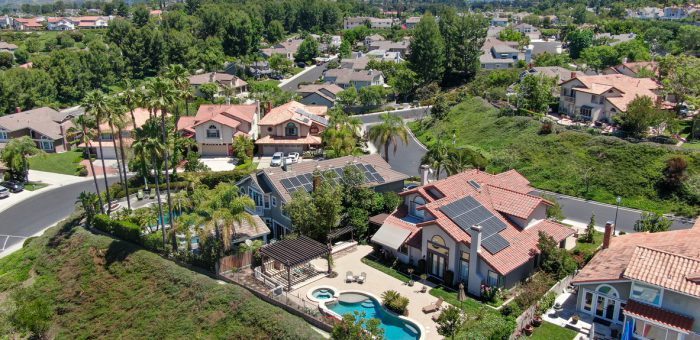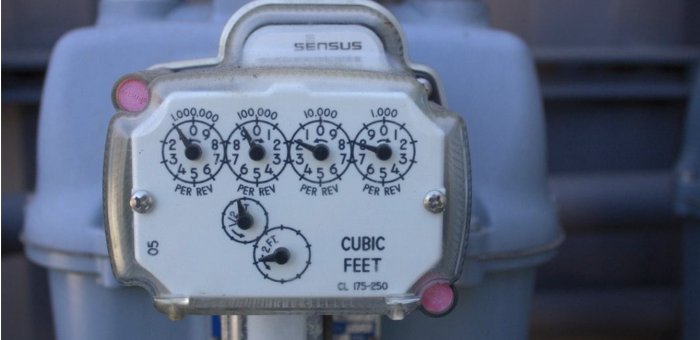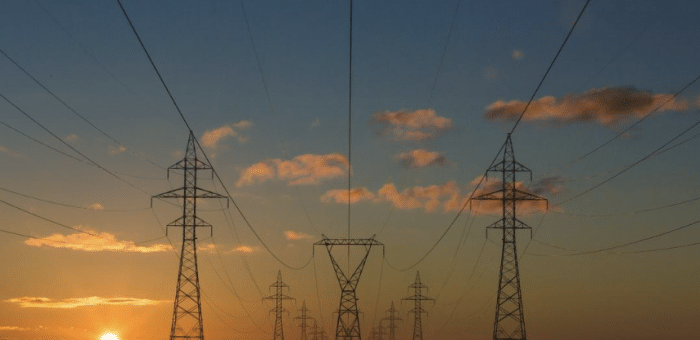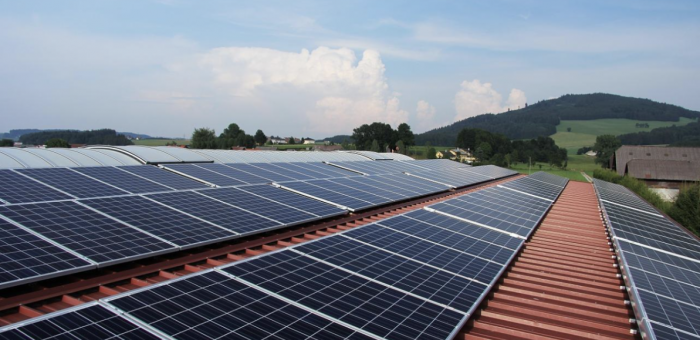You rely on your air conditioner to keep your Texas home cool and comfortable, especially during the hot summer months. However, it’s one of the most expensive appliances to run. That doesn’t mean that it should be cost-prohibitive. Here are things to consider that impact your air conditioner’s energy efficiency.
Several factors contribute to how much your air conditioner will cost you every month, one of which is your energy plan. For instance, if you have a variable-rate plan, your cost per kilowatt-hour will likely increase during the summer, when you depend on your air conditioner the most. That’s why it’s crucial to make sure you’re on the best electricity plan for your needs.
It’s also possible that your air conditioner isn’t particularly efficient. It has to consume a lot of electricity to make your home comfortable. Getting to the bottom of what’s impacting the energy efficiency of your air conditioner could help you save money on your monthly bills.
5 things that could impact your air conditioner’s energy efficiency
If your energy bills tend to spike in the warmer months, even with an affordable fixed-rate plan, it may be that your air conditioner isn’t functioning as well as it could. So what’s the cause?
Many issues can affect your air conditioner’s energy efficiency, forcing it to draw a significant amount of electricity every month. Here are some of the most common ones.
1. Lack of maintenance on your standard air conditioner
Air-conditioner issues often start out so small that you don’t notice them at first. Over time, however, they can worsen, leading to increases in your energy bills. Not only that, but more significant problems are also often more expensive to fix.
One of the best ways to avoid issues with your air conditioner is through routine maintenance. A thorough inspection can uncover potential problems, allowing you to fix them before they become worse. It can also help you avoid potentially expensive repairs — or, worse, the need to replace your unit — when you need your air conditioner the most. To ensure your system is in good working order, schedule these appointments at least once a year during the spring.
2. Not changing your filters as needed
Your air conditioner draws in warm air, removes the heat and humidity, and deposits the cooler air back into your home. As the air enters the system, it travels through a filter. That filter removes dust, dirt, pet dander, pollen, and other contaminants, ensuring the cooled air is also clean.
As airborne contaminants collect in the filter, it becomes harder for air to move through it. Your air conditioner has to work harder to draw air in, leading to more energy consumption. A dirty air filter can also cause issues such as:
- aggravated allergies,
- ice forming on the coils,
- uneven cooling throughout your home, and
- faster wear and tear on system components.
Periodic filter changes are crucial to maintaining air-conditioner energy efficiency. The general recommendation is every three months. However, you may need to change yours more often depending on factors such as how many pets you have, whether you have allergies, and how often you run your system. Ideally, you should check your filter at least once a month and change it when you notice it’s dirty.
3. Low SEER rating
The seasonal energy-efficiency ratio (SEER) refers to the ratio of your air conditioner’s cooling output over an entire season divided by the amount of energy it uses (expressed in watt-hours). The higher the SEER rating, the more energy-efficient the air conditioner is.
The minimum SEER rating for air conditioners in Texas is 14, but most homes have a system with a rating between 16 and 18. Older systems have ratings as low as 8 to 10. If you have one of these older units, it may be time to consider replacing it.
Note: The SEER rating refers to the maximum efficiency of an air conditioner. Certain conditions, including some of the ones described in this article, could impact the actual efficiency of your system.
4. Poor installation for your air conditioner
Even the highest-quality air conditioner with the most advanced technology won’t be efficient if the person putting it in your home installs it poorly. A bad installation includes issues such as:
- installing an air conditioner that’s the wrong size for your home,
- poor ductwork,
- an improperly charged refrigerant (overcharged or undercharged),
- poor placement for the outdoor unit,
- refrigerant lines that are too long, and
- an incorrect connection to your home’s power system.
These issues can impact the performance of even the highest-SEER air conditioners. Along with pulling more electricity and increasing your energy bills, these issues can also lead to system damage and expensive repairs.
5. Poor insulation or ducts
Poor home insulation allows warm air from outside to come into your indoor space. It also allows cooled air to leak out. Both of these issues mean your air conditioner has to cycle on more often to maintain the temperature you set on your programmable thermostat.
Issues with your ductwork could also impact your air conditioner’s energy efficiency. Leaks let cooled air escape before it reaches your vents. At the same time, warm air can get inside, increasing the temperature of the air your system just cooled. Again, your air conditioner will have to work more to lower the temperature in your home and keep it there.
What should you look for in energy-efficient air conditioners?
If you’re looking for more efficient systems to improve your home’s overall energy efficiency and reduce your monthly electric bills, here are a few things you’ll want to keep in mind.
Energy Star
An Energy Star-rated air conditioner is one that meets federally mandated guidelines regarding energy efficiency. The label means the system reduces energy dependence and can help you save money on your electric bills over time. Along with looking for a higher SEER-rated air conditioner, keep an eye out for the Energy Star label.
Energy costs
You could have the most efficient air conditioner available, but it won’t mean much if your yearly energy costs are too high. When shopping for a new system, don’t forget to take a look at your current energy plan. Combining an energy-efficient air conditioner with lower electricity costs could help you maximize your savings.
Square footage of your home
Size matters when it comes to choosing an air conditioner for your home. An air conditioner that’s too big may turn on and off more frequently, leading to faster wear and tear as well as higher energy bills. It also won’t be able to remove humidity from the air effectively. A system that’s too small will struggle to cool your home properly. It will run more often, again contributing to higher energy bills and increased wear and tear.
An appropriately sized air conditioner depends on your home’s square footage. Other factors, such as your insulation quality, the number of people in your home, the amount of direct sun exposure your home gets, and more, will also play a role. A qualified air-conditioning specialist can help you determine the best size for your home.
Increase your potential energy savings today
Some increases in your energy bills aren’t all that uncommon as the temperatures start to rise. After all, you’re using your air conditioner more. Sudden, significant spikes, however, can indicate there’s an issue. It could be that your air conditioner needs a new air filter or repairs to operate more efficiently. If your system is old, it may even need to be replaced.
More From the Power Wizard Blog
-
Affordable Electric Bill: Power Wizard’s Promise of Protection
Sarah, a proud Texan, knows that everything is bigger in Texas – including the choices when it comes to electricity providers. She’s no stranger to the complexities of deregulated energy markets. With a bustling household, she juggles work, family, and keeping the lights on. But there’s one thing Sarah doesn’t want to juggle: her electric bill. […]
View Article -
Vampire Energy: How Phantom Power Drains Your Wallet and the Environment
Imagine your home filled with silent energy sippers, lurking in the shadows, unnoticed yet constantly draining power and your wallet. Vampire energy, or phantom load, refers to the electricity electronic devices consume, even when turned off or in standby mode. These energy vampires are prevalent in every household and workplace, from the charger left plugged […]
View Article -
The Top Sources of Carbon Emissions in the U.S.
Climate change due to rising global temperature seriously threatens the natural ecosystem. It can result in erratic weather featuring intense drought, heat waves, melting ice caps, warming oceans, and increased storms when left unchecked. As the impact of climate change worsens, the risk of biodiversity loss and human extinction gets bigger. Table of Contents What […]
View Article -
California Solar Tax Credit & Incentives for Residential Rooftop Solar
Are you considering investing in residential solar panels in California? You’re not the only one. Research shows that California was ranked number one out of 50 states in 2022 for solar power generation, with more than 11 million homes powered by the sun. A major reason why solar power is popular statewide is that prices have dropped […]
View Article -
What Should You Include in an Energy Efficiency Audit?
Rising energy costs mean higher electricity bills, and for the average homeowner or business, a little savings each month can add up to extra cash at the end of the year. If you’re looking for ways to reduce your home’s energy consumption, performing a home energy audit is a great place to start. Table of […]
View Article -
How to Cancel Your Electricity Contract with Your Provider
There are many advantages to changing your electrical service, including finding a better price, switching to a company with better customer service, and finding a distributor with a green appeal. It’s easiest to end your service when a contract ends, but sometimes it makes sense to switch early. For instance, you may find that you’re […]
View Article -
How to clean your solar panels
Click on a section to skip directly to it: Why is it important to clean your solar panels?Solar panel cleaning: a step-by-step breakdownMake sure you’re saving the most on your monthly energy bill Have you considered installing a renewable energy source at your home? Power Wizard recommends trying solar energy, which accounts for 3% of […]
View Article -
How to Reduce Your Carbon Emissions
Click on a section to skip directly to it: Why is it necessary to lower carbon emissions?Steps to take to minimize your carbon emissionsReduce your carbon emissions with carbon offsets Carbon emissions refer to the measure of the impact of human activities on global warming and climate change. Every person on the planet contributes, directly […]
View Article













